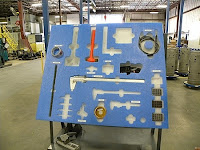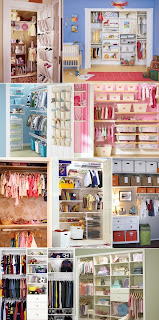 |
| Image from leanmusing.com |
 |
| image from unitherm.com |
The Lean filosophy was developed in Japan: Doing more with less by employing 'lean thinking.' Lean manufacturing involves never ending efforts to eliminate or reduce 'muda' (Japanese for waste or any activity that consumes resources without adding value) in design, manufacturing, distribution, and customer service processes. Developed by the Toyota executive Taiichi Ohno (1912-90) during post-Second World War reconstruction period in Japan, and popularized by James P. Womack and Daniel T. Jones in their 1996 book 'Lean Thinking.' Also called lean production.
Read more: http://www.businessdictionary.com/definition/lean-manufacturing.html#ixzz1zUgy4kfN
What is really common and useful both for work and at home is 5 s, see poster:
 |
| from Think Lean |
Don´t you agree that this is typical things you can find on blogs everywhere? I am not alone in loving solutions on how to get more organized, Pinterest is a great source for ideas.
Basically there are nice and fancy Japanese words in the Lean management world (Muda, Kanban, Poka-yoke and Kaizen) that goes back to what housewifes have done for 100s of years, getting their homes organized and efficient! :)
 |
| Image from Pinterest |
It doesn´t take a rocket scientist to come to the conclusion that it is more efficient to have a tidy environment, and that it is smart to have what you need, where you need it.
No comments:
Post a Comment